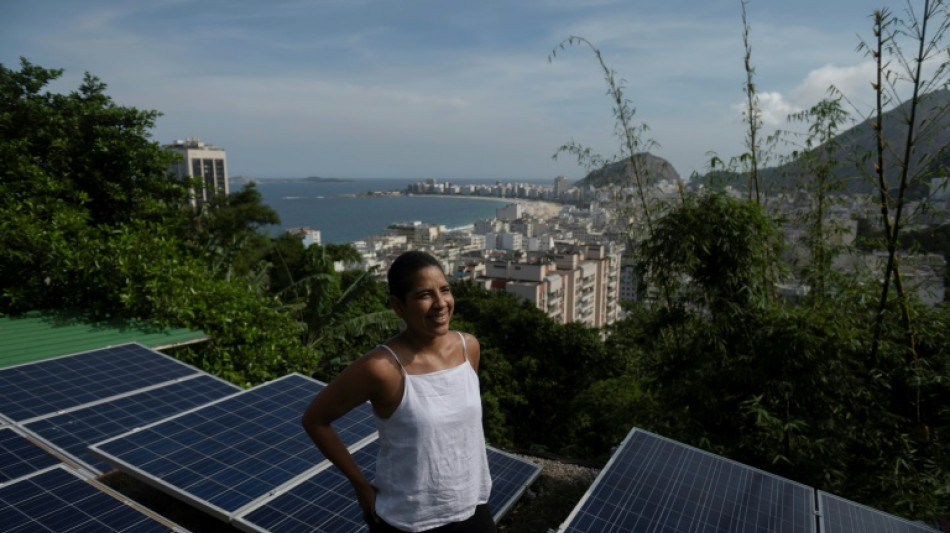
-
 Rocket re-entry pollution measured in atmosphere for first time
Rocket re-entry pollution measured in atmosphere for first time
-
Airbus ready to build two new European fighters if countries want

-
 Canada makes push to attract skilled migrants, including for defence
Canada makes push to attract skilled migrants, including for defence
-
US threatens to leave IEA if net zero focus remains
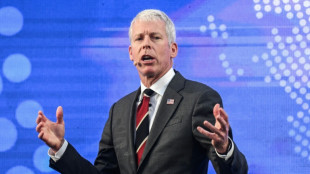
-
 Walmart outlines big AI ambitions as it reports mixed results
Walmart outlines big AI ambitions as it reports mixed results
-
Trump kicks off his 'Board of Peace,' as war clouds loom on Iran

-
 UK pubs to stay open late if home nations reach World Cup knockouts
UK pubs to stay open late if home nations reach World Cup knockouts
-
TotalEnergies in high-stakes French trial over climate change

-
 Bosnia probes fascist salutes at Croatian singer's concert
Bosnia probes fascist salutes at Croatian singer's concert
-
US and Israel issue dire warnings to Iran alongside US military buildup

-
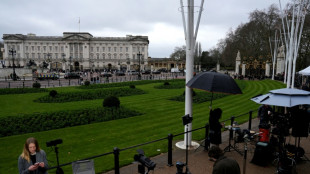 British public cheer Andrew's arrest with a smile and relief
British public cheer Andrew's arrest with a smile and relief
-
Argentine workers go on strike to protest Milei's labor reforms
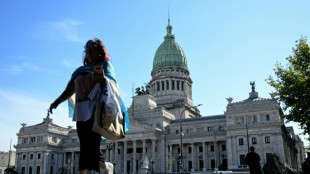
-
 Nakai targets Olympic skating upset as 'skimo' makes debut
Nakai targets Olympic skating upset as 'skimo' makes debut
-
What we know about ex-prince Andrew's friendship with Epstein

-
 US trade deficit in goods widens to new record in 2025
US trade deficit in goods widens to new record in 2025
-
Oil extends gains on US-Iran tensions, stocks retreat

-
 Williams 'on the back foot' after missing Barcelona: Albon
Williams 'on the back foot' after missing Barcelona: Albon
-
Real Madrid submit evidence to UEFA in Vinicius racism probe

-
 Olympics rev up Milan's renewal but locals fear price to pay
Olympics rev up Milan's renewal but locals fear price to pay
-
Cardona Coll, Fatton win Olympic-debuting ski mountaineering sprint golds

-
 MSF will keep operating in Gaza 'as long as we can': mission head
MSF will keep operating in Gaza 'as long as we can': mission head
-
Russian Filippov wins first medal at Milan-Cortina Games for individual neutral athletes

-
 Italian Milan takes sprint honours at UAE Tour
Italian Milan takes sprint honours at UAE Tour
-
Dozens killed in jihadist attacks in northwest Nigeria

-
 Zimbabwe unbeaten in T20 World Cup after six-wicket Sri Lanka win
Zimbabwe unbeaten in T20 World Cup after six-wicket Sri Lanka win
-
Postecoglou admits taking Nottingham Forest post a 'bad decision'

-
 Switzerland's Fatton wins women's ski mountaineering sprint on Olympic debut
Switzerland's Fatton wins women's ski mountaineering sprint on Olympic debut
-
Kinghorn, Van der Merwe return for Scotland against Six Nations strugglers Wales

-
 Repsol says could boost Venezuela oil output over 50% in 12 months
Repsol says could boost Venezuela oil output over 50% in 12 months
-
UN says Israeli actions raise 'ethnic cleansing' fears in West Bank, Gaza

-
 Arteta tells faltering leaders Arsenal to harness Wolves 'pain' against Spurs
Arteta tells faltering leaders Arsenal to harness Wolves 'pain' against Spurs
-
Crowley gets nod for Irish as Prendergast drops out

-
 Unbeaten Swiss to meet Great Britain in Olympic men's curling semis
Unbeaten Swiss to meet Great Britain in Olympic men's curling semis
-
UK police arrest ex-prince Andrew on suspicion of misconduct

-
 Oil extends gains on US-Iran tensions, Europe stocks slide
Oil extends gains on US-Iran tensions, Europe stocks slide
-
Former prince Andrew, a historic downfall

-
 Sri Lanka post 178-7 against Zimbabwe ahead of T20 Super Eights
Sri Lanka post 178-7 against Zimbabwe ahead of T20 Super Eights
-
OpenAI's Altman tells leaders regulation 'urgently' needed

-
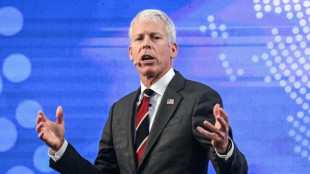 US renews threat to leave IEA
US renews threat to leave IEA
-
Liverpool boss Slot says Isak in 'final stages of rehab'

-
 Airbus ready to build two new European fighter jets if 'customers' ask
Airbus ready to build two new European fighter jets if 'customers' ask
-
UN Sudan probe finds 'hallmarks of genocide' in El-Fasher
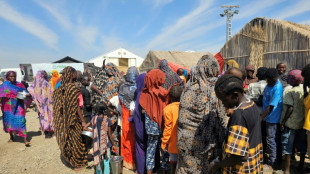
-
 Costelow starts, Hamer-Webb makes Wales debut in Six Nations clash with Scotland
Costelow starts, Hamer-Webb makes Wales debut in Six Nations clash with Scotland
-
Facing US warnings, Iran defends right to nuclear enrichment

-
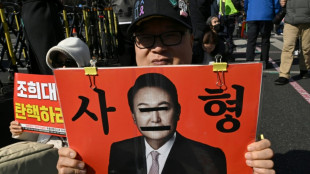 Ex-South Korea leader Yoon gets life in prison for insurrection
Ex-South Korea leader Yoon gets life in prison for insurrection
-
OpenAI's Altman says at India summit regulation 'urgently' needed

-
 British couple held in Iran sentenced to 10 years
British couple held in Iran sentenced to 10 years
-
West Indies ease past Italy to tune up for T20 Super Eights

-
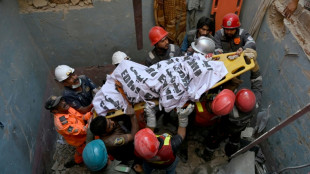 At least 16 killed after building collapses in Pakistan following blast
At least 16 killed after building collapses in Pakistan following blast
-
Summit photo op fails to unite AI startup rivals


Solar energy projects lower bills in Rio de Janeiro favelas
In a hillside slum with breathtaking views of Rio de Janeiro's famed Copacabana beach, a rooftop covered in photovoltaic panels glitters in the tropical sun -- one of many in Brazil's first favela solar energy project.
The solar panels on the roof of a community organization in the Babilonia favela take one thing the impoverished neighborhood has in abundance -- sunshine -- and use it to lower electricity bills while expanding renewable power sources.
The 60 panels feed electricity directly to the grid. In return, the utility company gives 34 families participating in the cooperative a much-needed discount on their bills.
Another 44 panels are installed atop private businesses, including a local hostel, which also receive discounts as part of the co-op.
"People in the favelas all too often have to decide between paying their electricity bills and buying food," says the head of the co-op, Stefano Motta.
"More and more residents are coming to us with complaints about their light bills -- sometimes 600 reais ($125) a month or more.
We're using that to raise awareness about the importance of solar energy for the economy and the environment," says the 45-year-old Italian, who moved to Rio a decade ago and now lives in Chapeu Mangueira -- the favela next to Babilonia, which also takes part in the co-op.
The project was launched last June by community leaders and a non-profit organization called Revolusolar.
It comes at a critical moment for favela residents struggling to pay their bills. The average electricity price for residential customers in Brazil is expected to increase by 21 percent this year, after rising seven percent last year, according to the National Electric Energy Agency (ANEEL).
Marcia Campos, a 51-year-old social worker who lives in Babilonia, says that before joining the solar co-op she was struggling to pay her electricity bill, which had risen to nearly 500 reais a month -- around half the Brazilian monthly minimum wage.
"Now, my (bill) is around 260 reais a month, sometimes as low as 180" in especially sunny months, she told AFP.
- Electricity crunch -
Last year, two key hydroelectricity producing regions in Brazil were hit by their worst drought in nearly a century, shrinking the rivers that feed dams producing nearly 60 percent of the country's electricity supply.
That sent authorities scrambling to fire up costlier thermal power plants to compensate.
But clean-energy proponents say renewable power sources are a better option for the economy and the environment.
In the favelas, solar is also an alternative to dangerous, clandestine electricity connections known as "gatos," which residents use to illegally wire their homes into the grid.
Electric utilities estimate the common practice costs 1.5 billion reais a year, and contributes to higher prices for everyone else.
- Spreading fast -
Brazil currently gets just 1.8 percent of its energy consumption from solar.
But residential solar-energy production from projects like the one in Babilonia "is growing very fast," says Carlos Aparecido, a professor of electrical engineering at Rio de Janeiro State University.
Solar power generated an average of 878 megawatts in Brazil in 2021, up 29.3 percent from 2020, according to the electricity grid operator, the National Interconnected System (SIN).
Solar is becoming more popular in Rio's favelas, home to nearly 1.4 million of the city's 6.8 million people.
"For the poor, it's a sustainable alternative to paying high electricity bills," says Aparecido.
In Vidigal, another iconic favela with breathtaking views of Rio's coastline, a community organization called Ser Alzira launched a solar panel project in December, using a co-op model similar to the one in Babilonia.
"We really needed it," says Elma de Aleluia, the organization's founder, who purchased the panels with the help of donations from the private sector.
"Thanks to the savings on the electricity bill, I have money to spend on our other projects."
L.Davis--AMWN


